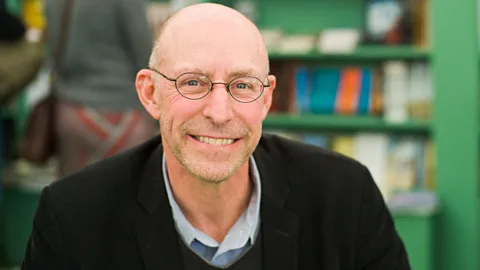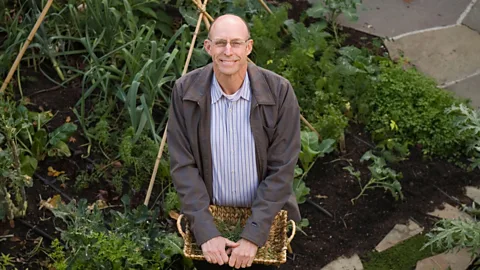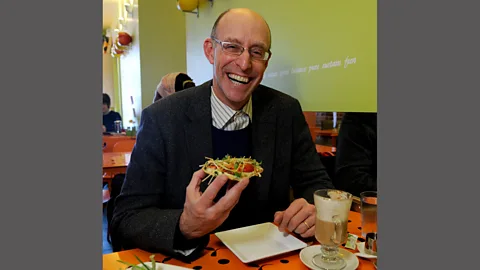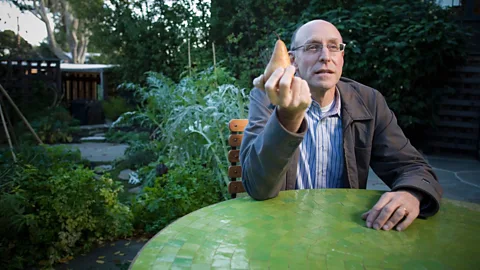Author Michael Pollan on food, travel and identity
 Jeff Morgan 07/Alamy
Jeff Morgan 07/AlamyThe author and activist discusses how to open yourself up to experience, wonder and awe.
Writer, activist and food guru Michael Pollan continues to explore the relationship between human identity and plants. His most recent book, How to Change Your Mind, argues that psychedelics, like travel, can feed both the body and soul.
Over interviews from his wood-lined Northern California home study, the author of classics like The Omnivore’s Dilemma and In Defense of Food described how travel has the potential to break down cultural walls. Pollan is famous for thought-provoking mantras like ‘Eat food. Not too much. Mostly plants’. He explains how people can best follow this principle when they travel; discusses how travel helps us shift our perspective; and dishes on some of the most memorable meals he's had around the world.
You may also be interested in:
• Barack Obama on why travel matters
Q: You've called tribalism one of the biggest threats facing civilisation today. Why is that?
The objectification and demonisation of the ‘other’ – people different than us because of faith, race, ethnicity, etc. – is at the root of so much conflict today. We are building walls rather than connecting.
Q: What are some ways that travel can help break down cultural walls?
One of the most striking things about tribalism, racism, etc., is that it thrives in the place where between different peoples happens less often. The people most opposed to immigration in America are the people who live in places where immigrants don't...
This argues for exposing different kinds of people to one another, and travel is, of course, an excellent way to do that. So, yes, travel does have the potential to break down cultural walls. Though I fear the people most inclined to travel are the ones most sympathetic to ‘others’ of all kinds.
 Martin Klimek/ZUMA Press/Alamy
Martin Klimek/ZUMA Press/AlamyQ: Why is travel good for breaking preconceptions and changing minds?
Neuroscience shows that our brains are prediction machines, that we don’t take in the world through our senses as it is, but rather formulate predictions based on as little information as possible. Travel is a very good analogue of psychedelic experience in that it disables those predictions and forces us to take in more information – sensory or otherwise.
We start from scratch in an unfamiliar place, much like the child who must absorb a tremendous amount of information because the shortcuts of everyday perception – been there, done that – are not available. This opens us up to experience, which opens us up in general to wonder, awe, etc.
Q: In your travels, what have been a couple of the most memorable rituals or beliefs you have encountered?
For me, the memorable rituals and beliefs surround food – all the ‘weird practices’ and foods people cherish that I would not think to put in my body or get excited about. So, it's a rule of mine to eat local wherever I am and whatever it means ingesting – whether that's ants in Brazil or tripe in Mexico or stinky tofu in China.
Sometimes I discover something I held an irrational prejudice against [and it] turns out to be delicious. Sometimes it isn't, and I marvel at the idiosyncrasies of human food selection behaviour.
Q: You have said that your first love is plants. Have you ever travelled to experience different flora?
I always visit gardens and farms when I travel to learn about local plants. I was recently in Colombia and, of course, had to visit a coffee finca (‘farm estate’), since that plant plays such an important role in my daily life and I had never met it in person.
One of my most memorable plant-travel experiences was being on assignment for National Geographic, hunting orchids in Sardinia and Panama. When you’re looking for something particular in the landscape, you really look, and that opens up a place in a way the usual ing through never does.
Q: You are known for the mantra ‘Eat food. Not too much. Mostly plants.’ Could you elaborate on how people might best follow this principle when they travel?
The most controversial word I’ve ever written is ‘mostly’, in [that] phrase. That pissed off the vegetarians because I was being half-hearted and not ing their point of view, and it pissed off the meat-eaters because I was insulting their hamburgers. We’re uncomfortable with adverbs like that. We’re uncomfortable with moderation. We really want a firm conclusion; no meat, or all meat, and I just think that’s wrong.
In general, I try to eat local when I travel, just for the experience and novelty, and often the ‘not too much’ part falls away. But the question to ask is, ‘What is food in this place?’ What is the traditional diet? And then try it. Odds are very good that it will be a healthy diet, because traditional diets are healthy by definition – they’ve kept people alive for a very long time, or they wouldn’t have endured.
As for plants, well, there are only so many meat animals and an infinitude of plants, so you’re much more likely to find novel eating experiences if you explore the fruits and vegetables of a place rather than its meats.
 Keith Beaty/Toronto Star via Getty Images
Keith Beaty/Toronto Star via Getty ImagesQ: You've written extensively in defence of food. What are some of the most memorable meals you've had around the world?
It’s usually ordinary food in exotic places that I love: tacos on the street in Mexico; fruit on the street in Colombia; barbecue in North Carolina; a bowl of pasta in Torino. But there have been a couple of fancy meals that have blown me away: Asador Etxebarri in the Basque Region served extraordinary grilled food, including a steak from a 14-year-old dairy cow that was the best I’ve ever eaten.
Q: Food is arguably as much a part of a place's culture as language or religion. What has eating around the world taught you about different people and places?
It's been a powerful reminder that humans are one of the few truly omnivorous creatures evolution has produced (along with rats and only a few others). This quality is precisely what has allowed us to thrive on six of the seven continents, making beautiful cuisines out of whatever nature has to offer anywhere on the planet. This has defined our species and has shaped our destiny as much as any other fact .
Context is everything. We tend to look at food as good or bad. But you cannot separate the nutrient from the food, because the food has a structure. And you can’t separate the food from the diet, and the diet from the culture and lifestyle. All these things are connected. So, to say anything in isolation about a food – that this food is good for you or bad for you – is hard to do. But there are exceptions; soda is one, since soda is basically pure processed sugar.
There is no one healthy diet. We have a lot of latitude. That’s the lesson from studying diet cross-culturally. You see that people have been healthy on a huge range of foods. We are omnivores.
Humans have evolved, through trial and error, an almost infinite number of healthy diets, built from whatever nature happens to offer wherever they live. These diets have to be healthy, or they wouldn’t have endured. They’re based on what is available, what works and what tastes good – not marketing, fashion or food science. The one exception is the modern Western diet, which reliably makes people sick. This bit of information should be all one needs to navigate the thickets of conflicting dietary advice.
Q: What are some of the most memorable culinary customs, traditions or habits you've experienced and what do you think each says about the people who practice them?
I've been struck by the universality of disgust, as a human emotion, and by the multiplicity of foods that inspire it. So, for example, the Chinese are as disgusted by cheese as we [Westerners] are by eating rotten things. Actually, cheese is a kind of rotten milk, but of course, we don't think of it that way. Whereas the Chinese rot tofu in old vegetable slime until it is so stinky you can't serve it indoors – and that is a delicacy! Ditto Koreans with their kimchi.
Cultures celebrate these ‘disgusting’ foods more than almost any other, because they define us. We are the kimchi eaters or stinky tofu eaters. What disgusts others fills us with pride. How weird is that?!
 Martin Klimek/ZUMA Press/Alamy
Martin Klimek/ZUMA Press/AlamyQ: How else has travel changed you?
Sort of like psychedelics, travel relativises ordinary consciousness and experiences [and] makes you appreciate [that] there are so many ways to live this brief life we’re granted.
Q: What’s a good reason to love the world right now?
It’s the only one we have.
How to Change Your Mind is now available in paperback.
more than three million BBC Travel fans by liking us on Facebook, or follow us on Twitter and Instagram.
If you liked this story, sign up for the weekly bbc.com features newsletter called "If You Only Read 6 Things This Week". A handpicked selection of stories from BBC Future, Culture, Capital and Travel, delivered to your inbox every Friday.
{"image":{"pid":""}}
